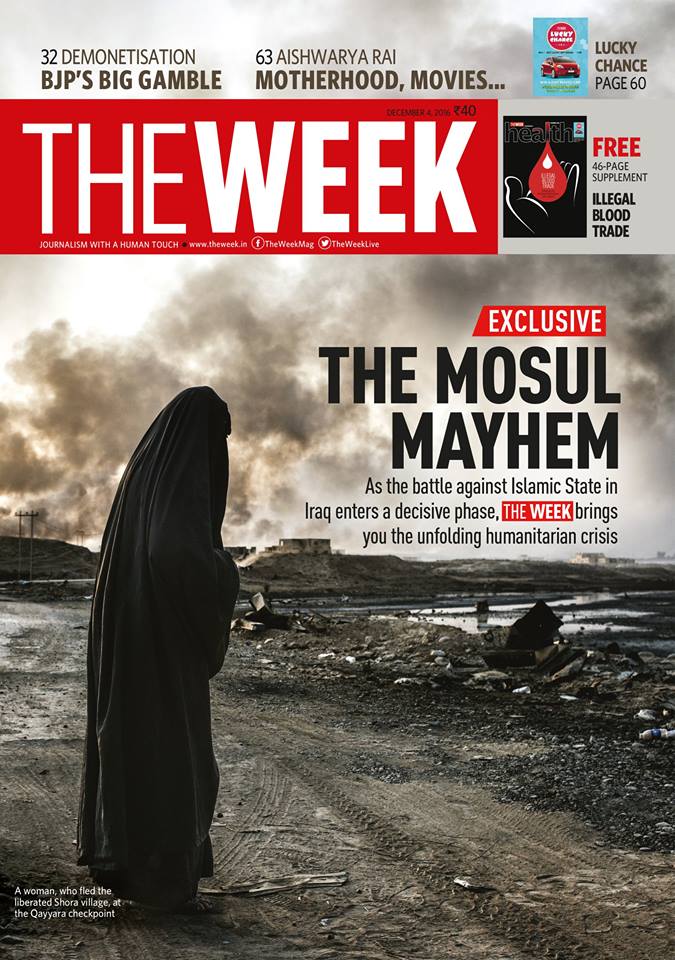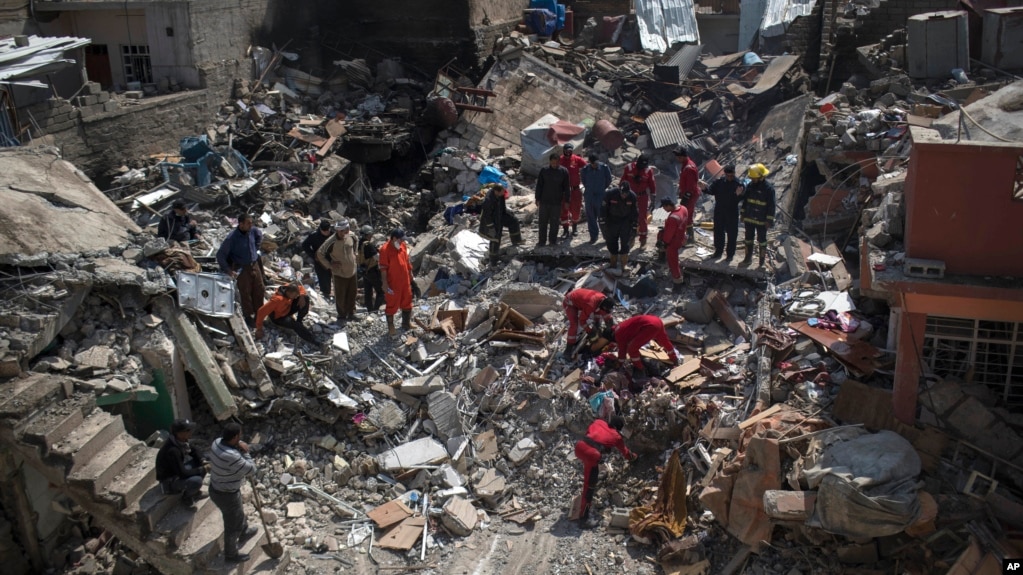
Terror terror terror. So far it had run all week.
With nothing good to report: not rising standards of living, not increased economic participation, not a sense of unity, a rallying call behind a flag, faced with massive rises in energy bills, Australia now possessing the most expensive electricity in the world, hopeless internet, with millions of people being forced, by law, onto inferior broadband networks as a result of the government's farcical National Broadband Network, the so-called information highway of the future.
The future was here and the future was a disaster.
As grotesquely overpaid bureaucrats preened behind the scenes, their frontman preened for the cameras.
The public had long ago stopped listening.
"This Means War", screamed the local tabloid The Daily Telegraph, handmaiden of the Turnbull government, always there to manipulate the public into a rise of patriotism. Except there was nothing left to feel patriotic about. The social engineers, who had set out to deliberately, and swiftly, destroy the nation's traditional culture, had made sure of that.
So it was back to terror, terror, terror this week. My favourite line of the week came from the "security source" - just how one becomes a "security source" remains a mystery to me -- who announced: "Terrorists are always looking for new ways to strike terror... There is no end of the possibilities where terrorists can try to cause terror to the public." Well, you could have fooled me. Robert Fisk.Suckered in.
Facing certain defeat on their own battlefield, public opinion, their own standing pulverised by their own multiple ineptitudes, the government lurching from one disaster to another, they felt, already in battle mode, that they had no choice but an appeal to patriotism.
No one rallied.
No one cared.
They sank, further and further, into their own tiny circles.
Australian bombs had just participated in a massive slaughter in the Middle East.
Nobody knew the exact number.
Some reports: 25,000 Islamic State fighters.
13,000 +++ civilians.
40% of participating Iraqi army fighters.
The final guesstimates of the slaughter would emerge from the rubble of history.
The number of Australians killed on home soil in the "war on terror".
Depending on how you counted it, half a dozen. Less.
The flame has been lit, as Islamic State was fond of saying, here in Iraq and Syria.
A patchwork quilt.
Sedition whispered the thugs, unable to control the population, used, only, in their thickset ways, to military solutions.
Morons muttered.
Thugs reached for totalitarian instruments of social control.
Every day, in this benighted country, things got worse.
Another freezing winter. Another long night of the knives. Another announceable from a remorseless, conscience free government.
They flailed in their own scatter gun of targets. Unable to control. Step by step. Step by terrible step.
The country his generation had known was dead.
To the victors the spoils.
They presided over a ruin.
Rats ran.
Smoke drifted.
Media distortion, in the game Old Alex had worked in all his life.
Thugs, they were just thugs.
Nothing good to report.
THE BIGGER STORY:
PRIME MINISTER:
Today I am announcing the most significant reform of Australia’s national intelligence and domestic security arrangements – and their oversight – in more than forty years.
Australia is facing complex and rapidly evolving security challenges.
Our security environment is being shaped by changes in our region and beyond involving the relationships between and actions of key states.
It is being shaped by the very real threat of home-grown terrorism that has increased with the spread of global Islamist terrorism, and by the growth in activity by criminals who continue to test our borders.
It is shaped by new and emerging technologies that complicate the work of security agencies and make the job of keeping Australians safe and secure ever more challenging.

In confronting these threats, Australia has been well served by our intelligence, security and law enforcement agencies – as well as by the Australian Defence Force.
And by the determination of the my Government to ensure our agencies have the resources, both financial and legal to keep Australians secure.
I want to acknowledge the dedication and professionalism of our security, intelligence, police and defence forces.
When it comes to our nation’s security, we must stay ahead of the threats against us. There is no room for complacency. There is no room for set and forget.
That is why last year, I commissioned a comprehensive review of the Australian Intelligence Community to test the assumptions and identify improvements in our existing arrangements.
The review was conducted by the former Secretary of the Department of Foreign Affairs and Trade, Professor Michael L’Estrange, the former Deputy Secretary of the Department of Defence and Director of the Australian Signals Directorate, Mr Stephen Merchant.
And those two gentleman were ably advised by Sir Iain Lobban, the former Director General of the UK’s GCHQ, which is the British counterpart as you know, to the Australian Signals Directorate.
I thank them for their work on a landmark report in the history of Australia’s intelligence and security community.
An unclassified version of the report will be released today and the government’s response to the matters not dealt with me by this morning will be released following further consideration of those recommendations by the government.
Now this very valuable report offers a comprehensive overview of the nation’s intelligence community, concluding that our agencies are highly capable and staffed by very skilled and dedicated officers.
It has made many important recommendations to transform our highly capable agencies into a world-class intelligence community - to ensure, as the review says, that “the whole is greater than the sum of the parts”.
The Government accepts the principles of the reviewers’ recommendations as providing a sound basis to ensure Australia remains ahead of the threats.
The scope of the recommendations covers all aspects of our intelligence community, including changes to its structure, capability, coordination and oversight, including the establishment of an Office of National Intelligence to ensure more effective coordination of Australia’s intelligence effort.
This is a lesson that we have learnt from the UK is that having a central policy making process leads to better operational outcomes. The new Office of National Intelligence will coordinate this central intelligence policy and coordination function.

All of our Five Eyes partners have established a single point of coordination for reasons the report makes very clear - Australia doing the same will ensure even better collaboration with our Five Eyes partners.
It also recommends and we accept this recommendation the transformation of the Australian Signals Directorate into a statutory authority within the Defence portfolio.
And it also makes recommendations to changes to legislation and oversight arrangements to reflect the increasing demands placed on our agencies by Australia’s security environment.
We will also accept recommendations to further boost the nation's cyber security. In recognition that the Australian Cyber Security Centre must have a whole of economy focus, I will appoint my Cyber Security Special Adviser as the Head of the Australian Cyber Security Centre. And we will establish an Australian Cyber Security Centre 24/7 capability to respond to serious cyber incidents. This capability will better meet the needs of the community and the government in relation to rapidly emerging cyber events and we’ve seen some examples of that very recently.

Now given the scope of recommendations, I have asked the Secretary of my Department to establish a taskforce to manage implementation of the changes and to consider them in detail.
I anticipate the reforms being implemented progressively and to be completed through the course of 2018.
The review has highlighted important considerations for how Australia handles its domestic security arrangements, including our very complex security environment becoming more so, the threats that we face are multi-dimensional, the lines between organised criminals and terrorists are blurred, contemporary threats drive the need for our agencies to work closer together.
For the past decade, as security challenges have become more difficult, successive Governments have strengthened cooperation between domestic agencies on an ad hoc basis.
A lot of good work has been done, notably the Coalition’s own Operation Sovereign Borders which have kept the people smugglers’ boats at bay for nearly three years.
But the Australian Intelligence Community review itself noted the existence of a number of ad hoc taskforces which seek to enhance cooperation and coordination between agencies on specific threats.
The challenges the current international security environment poses to the our intelligence agencies, as outlined in the Review, are very similar to those faced by the policy and operational arms of the national security community.
Ad hoc and incremental adjustments to our national security arrangements do not adequately prepare us for the complex security future we face.
In these difficult times, repeated reviews and task forces are not enough. We need to take more decisive action.

We can’t take an ‘if it ain't broke don't fix it’ approach to security arrangements, not least because our adversaries are agile and nimble, constantly adapting and evolving to defeat our defences.
We need more enduring and better integrated arrangements for our domestic and border security. Arrangements that will preserve the operational strengths and independence of our frontline agencies, but improve the strategic policy planning and coordination behind them.
So I have decided to establish a Home Affairs portfolio of Australia’s immigration, border protection and domestic security agencies.
The new portfolio will be similar to the United Kingdom’s Home Office arrangement – a federation, if you will, of border and security agencies.
Now let me be quite clear - this is not a United States-style Department of Homeland Security. The agencies will retain their current statutory independence, which is such a vital aspect of our Australian system.
The operational agencies will include ASIO, the Australian Federal Police, the Australian Border Force, the Australian Criminal Intelligence Commission, the Australian Transaction Reports and Analysis Centre or AUSTRAC and the Office of Transport Security.
They will be supported by a central department that will oversee policy and strategic planning and the coordination of the operational response to the threats we face.
The Home Affairs Minister will have two ministers working to him, on the security side and the immigration side.
Michael Keenan, who has been doing an outstanding job as the Justice Minister, will continue to be that important security-focused minister.
The Home Affairs portfolio will be complemented by a move to strengthen the Attorney-General’s oversight of Australia’s domestic security and law enforcement agencies, including, by moving the Inspector General of Intelligence and Security and the Independent National Security Legislation Monitor to the Attorney-General’s portfolio.
The Government will also review the role of the Attorney-General in the role in ASIO’s operations in the work to design and establish the new portfolio to ensure continued and efficient oversight.
Now, I have always believed strongly in the role of the Government’s First Law Officer - it will only become more critical as threats continue to evolve and the challenges of dealing with them more complex. So I am determined to ensure effective oversight, now I’m come to some details about that in a moment.
Now we need these reforms not because the system is broken but because our security environment is evolving quickly, it is becoming more complex, it is likely to remain so for the foreseeable future. We need a better structure to meet the challenge of the times. And that is why we’re adopting a model which is closer to the British Home Office than the large scale American Homeland Security Department.
So I want to stress we are taking the best elements of our intelligence and national security community and making them better.
As terrorists evolve their methods, we have to evolve our responses.
Now this announcement is a result of years of planning and research. It’s a result of considered thought and study. It’s a result of extensive consultation.
Last week I was in the United Kingdom where I spoke with the Prime Minister, Theresa May and the Home Secretary Amber Rudd about the structure of the UK system.
The Attorney-General and I have held extensive discussions on counterterrorism with our partners in the Five Eyes. George having done so most notably very recently, particularly in the context of cyber security.
The overseas experience is clear - a better coordinated, better integrated counterterrorism structure is of vital importance.

So the reforms I’m announcing today will entrench the cooperation between the agencies, which has helped us thwart 12 terrorist attacks and stop 31 people-smuggling ventures in recent times.
It will take the cooperation further by ensuring more effective strategic planning and coordination of the agencies and identify opportunities for streamlining back office and other support functions. At the same time we will ensure that our operational agencies will remain nimble and focused on front-line tasks.
The establishment of the Home Affairs portfolio is a complex undertaking.
So, I have asked the Minister for Immigration and Border Protection to oversee the development of the government’s governance structures, legislative changes and operational planning as the Minister-designate for Home Affairs. And he’ll be working closely with my Department and of course, with the Attorney.
I have instructed the head of my Department to have the taskforce being established to implement and respond to the recommendations of the Australian Intelligence Community Review to ensure that the arrangements to create the Home Affairs portfolio are prepared with a unity of purpose and fully coordinated with changes to the intelligence community. The taskforce will develop the necessary governance, legislative and other changes to effect the Government’s objectives. And it will ensure that the changes to the intelligence community, and the establishment of a Home Affairs portfolio, are aligned.

The NSC will approve the portfolio implementation plan later this year, with its roll out to be complete by 30 June, next year.
Now throughout this transition period, our operational agencies will continue to report to their current ministers, pending the finalisation of new arrangements.
There will be no reduction in frontline capacity, focus or operational tempo.
At the same time we are strengthening our security arrangements, we will also strengthen our oversight, accountability and integrity structures by increasing the powers and the remit of the Attorney-General in relation to Australia’s intelligence communities and agencies of the new Home Affairs portfolio.
The principles of oversight of our intelligence agencies were core recommendations of the Hope Royal Commissions of the ‘70s and ‘80s
Strong oversight and accountability is important for public confidence that our agencies not only safeguard our nation’s security, but do so respecting of Australians’ rights and liberties.
The Attorney-General will retain his current role in the issue of warrants and ministerial authorisations.

Now I understand that some of those who are concerned about the enhancement of our national security arrangements I am announcing today want to be assured that the civil liberties of Australians are not eroded.
I am determined that the protections and oversight we’re establishing today on very strong foundations will remain a fundamental feature of our system. There will be stronger oversight, stronger oversight under these new arrangements.
The AIC review has made some detailed recommendations regarding the oversight of our intelligence agencies and they will as I noted be explored in detail by the work led by my Department.
However, the key institutions charged with oversighting the intelligence agencies will be moved from my portfolio to the Attorney-General’s portfolio.
That includes the Inspector General of Intelligence and Security and the Independent National Security Legislation Monitor and these will join existing portfolio bodies such as the Australian Commissioner for Law Enforcement Integrity.
I have also decided that the Commonwealth Ombudsman should be brought into the Attorney-General’s enhanced oversight role, remaining as an independent statutory body.
The Ombudsman, as you know, plays a vital role in considering and investigating public complaints about unfair or unreasonable treatment by Government departments and agencies – many of which are involved in these reforms.
Its placement within the Attorney-General’s portfolio complements other changes announced today and cements the vital role of the First Law Officer in ensuring Governments act lawfully and justly.
The First Law Officer is the minister for integrity, the minister for oversight and integrity and that role is being reinforced.
Without creating any new unnecessary bureaucratic layers, these reforms ensure a higher level of checks and balances than we have ever had before. It is an important part of our constant effort to get the balance right between security and civil liberties.
Taken together, these changes are the most significant security and oversight reforms, as I said, in four decades.
They reflect the evolving and complex security environment at home and abroad – and the enduring need to stay ahead of them.
They reflect the professionalism of our operational agencies and our determination to ensure that they remain the world’s best.
And above all, these reforms reflect my Government’s tireless determination to keep Australians safe.
I’ll ask the Attorney to add to these remarks and then the two ministers.


No comments:
Post a Comment